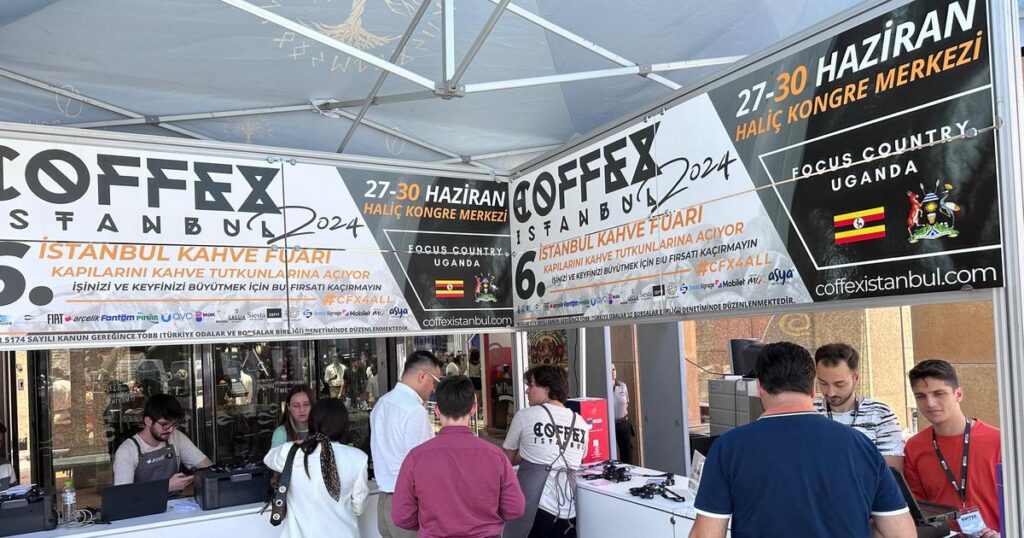This impressive growth is attributable to the strategic initiatives of Turkey’s Mission in Uganda, which has revamped its approach to investment, trade and tourism.
By focusing on coffee, a staple product of Uganda that cannot be easily replaced in Turkey, the mission effectively capitalized on Turkey’s growing demand for high-quality coffee.
“Turkey is an attractive market with a large population and a growing economy, offering great opportunities for Ugandan coffee exporters,” said Julius Mwijuca, counselor for economic and commercial diplomacy at the Ugandan embassy in Ankara.
He added, “Given Turkey’s economic potential and Uganda’s goal of expanding coffee exports, we focused on establishing a strong presence in the Turkish market. Our efforts have borne remarkable fruit, with Uganda’s coffee exports to Turkey expected to increase from 2,000 bags in 2019 to 44,000 bags in 2024.”
Ugandan coffee has become popular in Turkey due to its excellent inherent quality characteristics and many varieties suitable for a differentiated market.
In particular, there is high demand for the Robusta coffee that Uganda can supply, especially Screen 18 and Screen 15.
The Ugandan Embassy in Ankara is actively promoting Ugandan coffee in Turkey, including participating in the Coffex international coffee exhibition in Istanbul.
These efforts have increased awareness of Ugandan coffee and its unique qualities.
“Turkey’s tourism industry is particularly noteworthy, with cities such as Istanbul and Antalya attracting millions of visitors each year,” Counselor Mwięcza noted.
“In fact, the world’s most visited city in 2023 will be Istanbul, with more than 20 million tourists, followed by London, Dubai and Antalya.”
Coffee consumption in the country has increased fourfold over the past decade and is expected to reach 1.7 kilograms per capita by 2023.
The significant increase in coffee exports to Turkey will bring significant economic benefits to Uganda. With the current market price in Uganda at Sh6,000 per kilogram, these exports are substantial and underscore the economic benefits of the Uganda-Turkey strategic partnership.
“To understand this achievement, consider the volume and value of these exports. 44,000 bags of coffee equates to approximately 2,640 tonnes. Using Uganda’s current market price of 6,000 shillings per kilogram, we can estimate the value of these exports. This calculation highlights the huge economic benefits of our strategic partnership with Turkey,” elaborated Mwijutsia, whose term ends at the end of June 2024.
The potential revenue gains are substantial, with Uganda’s coffee exports to Turkey estimated to reach US$1.5 billion by 2025. This will not only boost Uganda’s economy, but also cement its position as a major player in the global coffee market.
Mwidjutsiya also said he trusted his successor, an experienced senior diplomat, to maintain the progressive trend.
“Our mission’s strategic plan aims to ensure continuity and sustained progress in our economic and commercial diplomacy efforts. I am confident that with a dedicated expert at the helm, our cooperation with Turkey will intensify, promoting growth and prosperity for both our countries,” he said.
Mwijutya believes that with the support of the Uganda Coffee Development Authority (UCDA) and the Ministry of Foreign Affairs, Ugandan coffee can establish a strong presence in the Turkish market and contribute to the country’s economic growth.


